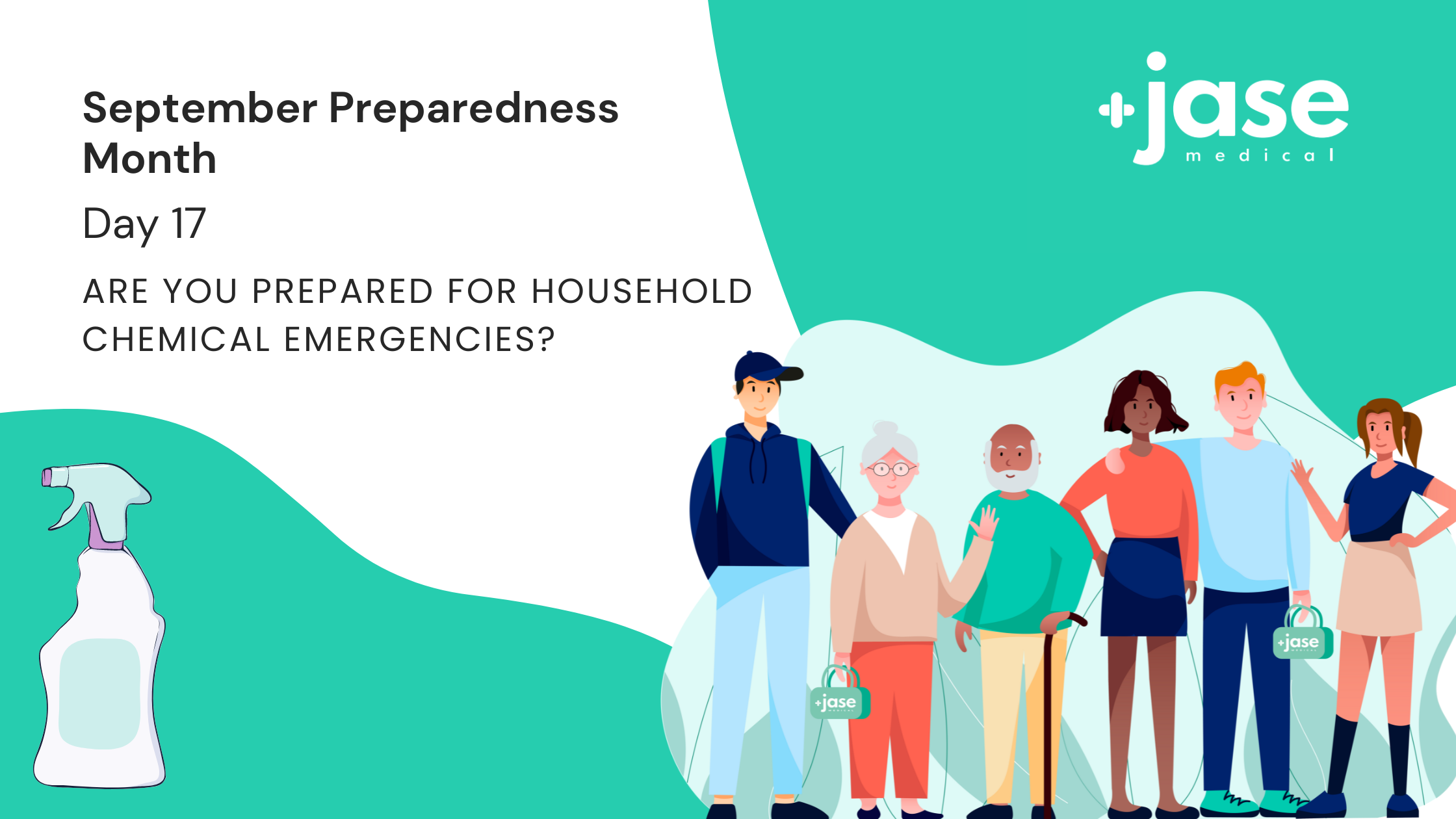

Almost every household has some products that contain hazardous materials or chemicals. Knowing how to handle and store these products and what to do if someone is improperly exposed to them can help reduce injury.
Prevention is key. Before an emergency occurs, make sure to store household chemicals in places where children and pets cannot get to them. Also make sure you have the national poison control number saved in your cell phone or posted common areas or near landlines.
National Poison Control Phone: 1-800-222-1222
Down below is a list of common household chemicals:
- Aerosol cans – may include cleaning supplies, but also consider hairspray or deodorant as well
- Nail polish or nail polish remover
- Cleaning products and furniture polishes
- Laundry detergent and bleach
- Automotive products like oil, windshield wiper fluid and antifreeze
- Flammable products like kerosene, heating oil, propane tanks and lighter fluid
- Lawn and garden supplies like pesticides, herbicides and insecticides
- Workshop or painting supplies like paint thinner
- Common household items like batteries, mercury thermometers, and fluorescent light bulbs
Storage of hazardous or dangerous chemicals is of utmost importance. Again, only store household chemicals in places where children and pets cannot get to them. Make sure they are out of reach and have a lock or child proof fastener to prevent accidental openings.
Other storage pearls to consider:
- Keep all chemicals in their original containers and never remove the labels. If a container is corroding, it should be repackaged and clearly labeled
- Never store hazardous chemicals in food containers
- Make sure to dispose of chemicals correctly and never mix household chemicals. For example, bleach and ammonia may react and ignite or explode.
- Never use products near an open flame
- Clean up spills immediately. Allow fumes in rags to evaporate in a well ventilated area or outdoors before properly disposing of them
If there is a chemical spill or emergency in your home, make sure to follow these steps:
- Get out immediately if there is danger of fire or explosion
- Stay upwind and away from residences to avoid further exposure and breathing toxic fumes
- Monitor yourself and others for signs of toxic poisoning, which may include:
- Difficulty breathing
- Changes to skin color
- Headaches or blurry vision
- Irritation of eyes, skin, throat, or respiratory tract
- Dizziness, clumsiness or lack of coordination
- Cramps or diarrhea
- Call the national poison control phone number if you think someone is experiencing any symptoms.
- Follow instructions from the emergency dispatcher. Do not give anything by mouth unless advised to do so.
After a chemical emergency, discard all clothing and materials that have been contaminated. Some chemicals do not wash out fully.
- Brooke Lounsbury
Medical Content Writer
Lifesaving Medications
Recent Posts
Keeping you informed and safe.
FAQ: Our most commonly asked questions about Jase
If you’re considering Jase, chances are you’ve paused and thought, “This makes sense, but I still have a few questions.”You’re not alone. Here are the most common ones we hear, answered plainly. Is this really doctor-prescribed? Yes. Every Jase order is reviewed by a...
Medical Readiness: What Really Kills First
When Disaster Strikes, It’s Not Hunger or Thirst That Takes the First Lives In every disaster zone, from hurricanes in the Caribbean to war zones in Ukraine, the pattern is the same. People worry about food and water, but it’s infection that kills first. A small wound...
Exploring Dr. William Makis’ Hybrid Orthomolecular Cancer Protocol: Focus on Ivermectin and Mebendazole/Fenbendazole
Exploring Dr. William Makis’ Hybrid Orthomolecular Cancer Protocol: Focus on Ivermectin and Mebendazole/Fenbendazole *Disclaimer: This article is for educational purposes and does not constitute medical advice. Always seek professional guidance.* In the evolving...



